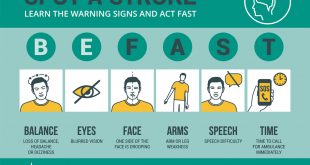A MD’s Guide
BY STEPHEN MILEY, MD


Basically, you need to know 3 things.
1) Know what to eat.
2) Know when to eat.
3) Understand and if necessary, optimize your hormones.
What to eat:
We have been taught that calories are what determines if we gain or lose weight. Big lie!
What is important is the nutritional value and insulin impact of those calories. Do you really believe that 100 calories of Hostess Twinkies is of the same nutritional value as 100 calories of broccoli? Which helps fill you up more, has better vitamins, minerals, and nutritional value? Which will spike your insulin? Insulin has 2 main functions: to move glucose out of your arteries into your cells where it can be used as fuel, and secondly to stop burning fat.
Basically, when you eat a high carbohydrate food (particularly high glucose and fructose containing foods) your pancreas secretes large amounts of insulin so it can be used by your cells. It says, “I’ve got plenty of glucose. Don’t burn fat. Store the excess as fat for later”.
So, if your Insulin is high, you cannot burn fat.
Cortisol is your stress hormone. It is the “Fight or Flight” hormone. When it is triggered, it spikes your insulin. Now, all available glucose is shunted into your muscles so you can fight or run. Adrenalin is also released which stimulates your heart and heightens your awareness for the same reasons.
Nowadays, a lot of us are chronically stressed, cortisol is always a little high, and so is your insulin. Thus, you can’t burn fat even on a diet!
Eating a low carbohydrate diet, basically fresh vegetables and meat, or if vegan, plant-based proteins, is a healthy, nutrient dense, satisfying, and sustainable diet. More on this when you are in the Clinic!
When to eat:
If insulin is the problem, we now see eating foods that don’t spike the insulin is the first step to taming the constantly high level. The second step is creating some time when there is no food being eaten so the pancreas is not stimulated to produce insulin and it naturally is low. Now you can and will burn fat. How do we accomplish this? 100 years ago, and longer, we did not eat 3 meals a day. Sometimes we ate every couple of days when food was scarce. During these times we would go to our reserve energy pool: fat. And we would burn this selectively. So we would burn fat, and our insulin would return to near zero. Today we achieve this by intermittent fasting. We stop eating at 8pm and don’t eat again until noon the next day. When we do this our bodies burn fat, and the insulin stays low. Over time the Insulin Resistance we built up resolves and we can lose weight and keep it off, because we understand and work with our hormones rather than them controlling us.
Optimizing our Hormones:
Insulin is the main player in this challenge, and I hope you have at least a basic understanding of why that is. There are other hormones that are also important. As we gain weight, we also gain visceral fat. This is the fat around your organs and is what is responsible in large part in inflammation, and the metabolic syndrome. This develops because of diet and the slow progressive decline of your testosterone (for both men and women) and thyroid hormones. These are your metabolic hormones and sometimes optimizing then makes a huge difference in long term healthy weight loss. Building muscle is important. It is the use of our muscles that is largely responsible for burning off fat. We start by checking all of your hormone information with laboratory analysis. If you want sustainable weight loss you need to optimize your hormones so that when you lose the weight it can stay off.
What about Semaglutide?
First, Semaglutide is a peptide that mimics the hormone glucagon-like peptide-1 or GLP-1. It has many receptors in the body but affects weight loss by targeting areas in the brain that control appetite, food intake, and slows the movement of food through the GI tract to make you feel full longer with less food.
GLP-1 agonists also cause your pancreas to secrete/release insulin and blocks the hormone Glucagon which causes to the liver to release sugar. All these actions combine to make you eat less, feel fuller and lose weight easily.
There is a great deal to know about using this Peptide. You should not take it if you have a history of pancreatitis, thyroid cancer, or multiple endocrine neoplasia’s. It must be started slowly and discover the dosage that works best for you. This therapy should be monitored by a physician who is very familiar with its use. Our patients are having great success! Come and see us in the Clinic!
We would love to hear from you
and answer your questions.
(941) 217-4440
2344 Bee Ridge Rd, Ste 104
Sarasota, FL 34239
www.themileyclinic.com
 Southwest Florida's Health and Wellness Magazine Health and Wellness Articles
Southwest Florida's Health and Wellness Magazine Health and Wellness Articles

